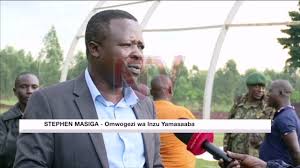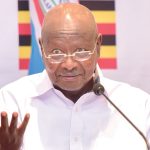Many Ugandan statutes are reluctant to use the word “election” when referring to the selection of a cultural leader.
The thinking behind this reluctance is that there is no gazetted returning officer throughout the process, which would otherwise validate the notion of an “election.”
What does the law say about the gazettement of cultural leaders in Uganda? And why did Parliament anticipate the possibility of noise or disputes following the selection process? Secondly, are Ugandan communities vested with the necessary power to enact their own laws to regulate cultural institutions? I think the answer is currently “no,” since the Cultural Leaders Act of 2011 does not provide any provisions for such community participation in lawmaking.
The Constitution of Uganda and the Cultural Leaders Act of 2011 are the primary statutes that guide the appointment of cultural leaders. These laws apply to all Ugandans, from the Toro Kingdom to Bunyoro Kingdom, the Bugisu region, and beyond, particularly in the gazetting of cultural leaders.
The most authoritative provision regarding how a cultural leader comes into office is Article 246 of the Ugandan Constitution, which outlines the roles that a cultural leader plays within their community.
How, then, is the gazetting of cultural leaders done in Uganda? The law states that once a community has determined who should be its cultural leader, and if there is contestation regarding who is the rightful choice, the Minister of Gender and Social Development (MOGSD) will invoke Section 15(1) of the Institution of Traditional and Cultural Leaders Act. Elders will be assembled to conduct mediation in order to resolve the impasse.
For example, after the cultural elections of 2020 for the position of the Umukuka III of the Bamasaba people, several claimants emerged, having been defeated at the electoral yard. They began disputing the outcome. In response to this confusion, the Minister for Gender and Social Development, Hon. Betty Among Ongom, and her team invoked the relevant provisions of the Ugandan Constitution and the Cultural Leaders Act to resolve the dispute as envisaged by the statutes.
Article 246(2) of the Ugandan Constitution provides a formula for resolving such disputes, which is operationalized by Section 15(1) of the Institution of Traditional and Cultural Leaders Act, 2011. The Minister invoked Section 16(1) (before amendment) and wrote to the late Umukuka Emeritus Wilson Weasa Wamimbi, technically empowering him to manage the entire process and report back.
As guided by the law, Umukuka Emeritus Wilson Weasa Wamimbi assembled a team of 26 clan heads from Masabaland and convened in the Mbale District Hall. After 12 hours of deliberation, in the presence of all claimants to the throne, the mediators agreed that the current Umukuka III, His Highness Jude Mike Mudoma, was elected and gazetted in accordance with the laws that establish and recognize Bukuka in Uganda. These laws include the Constitution of Uganda (specifically the state cultural objective in Article XIV), operative provisions like Article 246 in its entirety, the Local Government Act, and the Institution of Traditional and Cultural Leaders Act 2011, particularly Sections 16(1) and 6 (as amended), as well as other international protocols on the subject.
This model of dispute resolution is the most effective for clans, as elders are legally empowered to make binding decisions in such matters, especially those occurring within local communities.
This dispute resolution mechanism is procedural in nature, and courts of law should refrain from interfering. If courts in Uganda are faced with any situation that impedes the early gazetting of a cultural leader, they must analyze the diagnosis, prescription, and legal directives inherent in our various municipal provisions. They should carefully consider the directives left by lawmakers and demonstrate fidelity to the law.




















